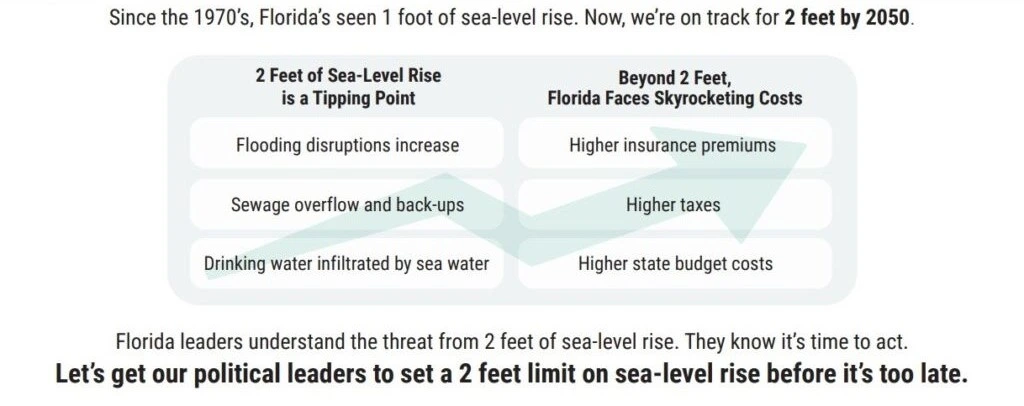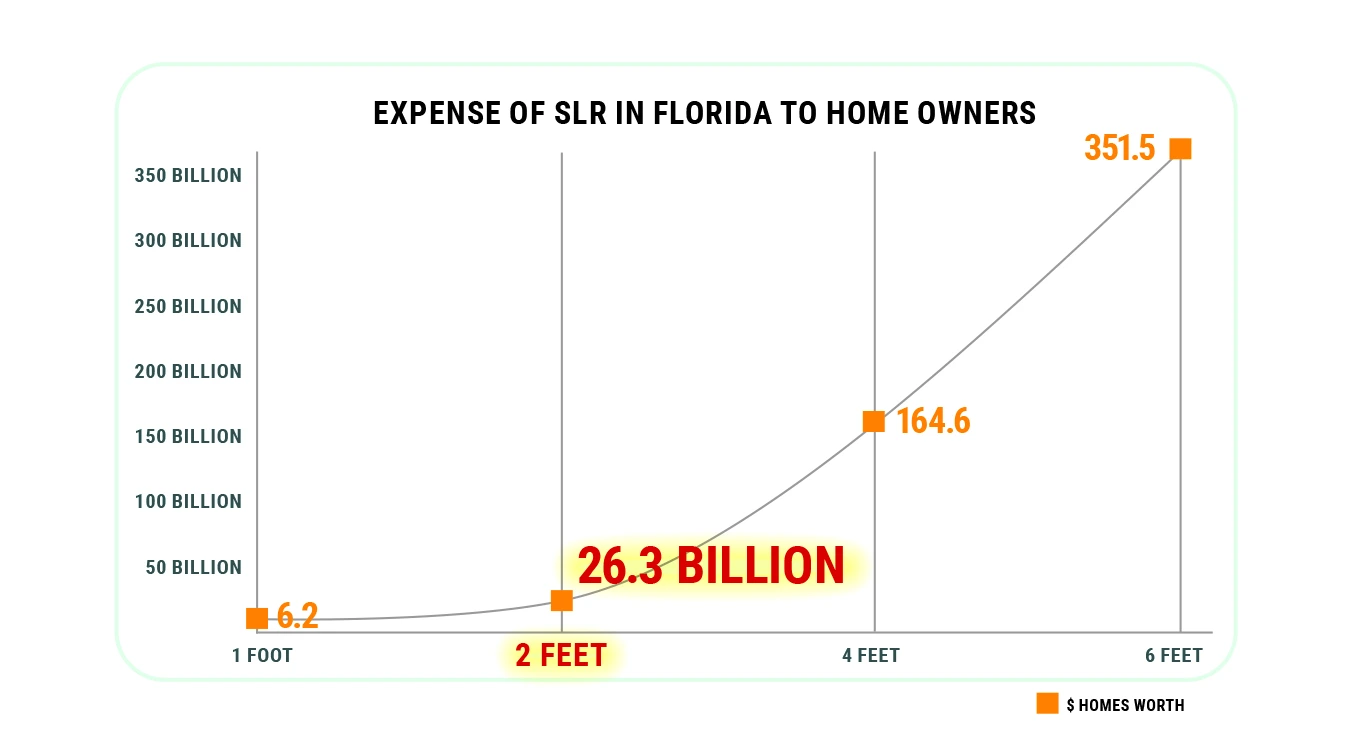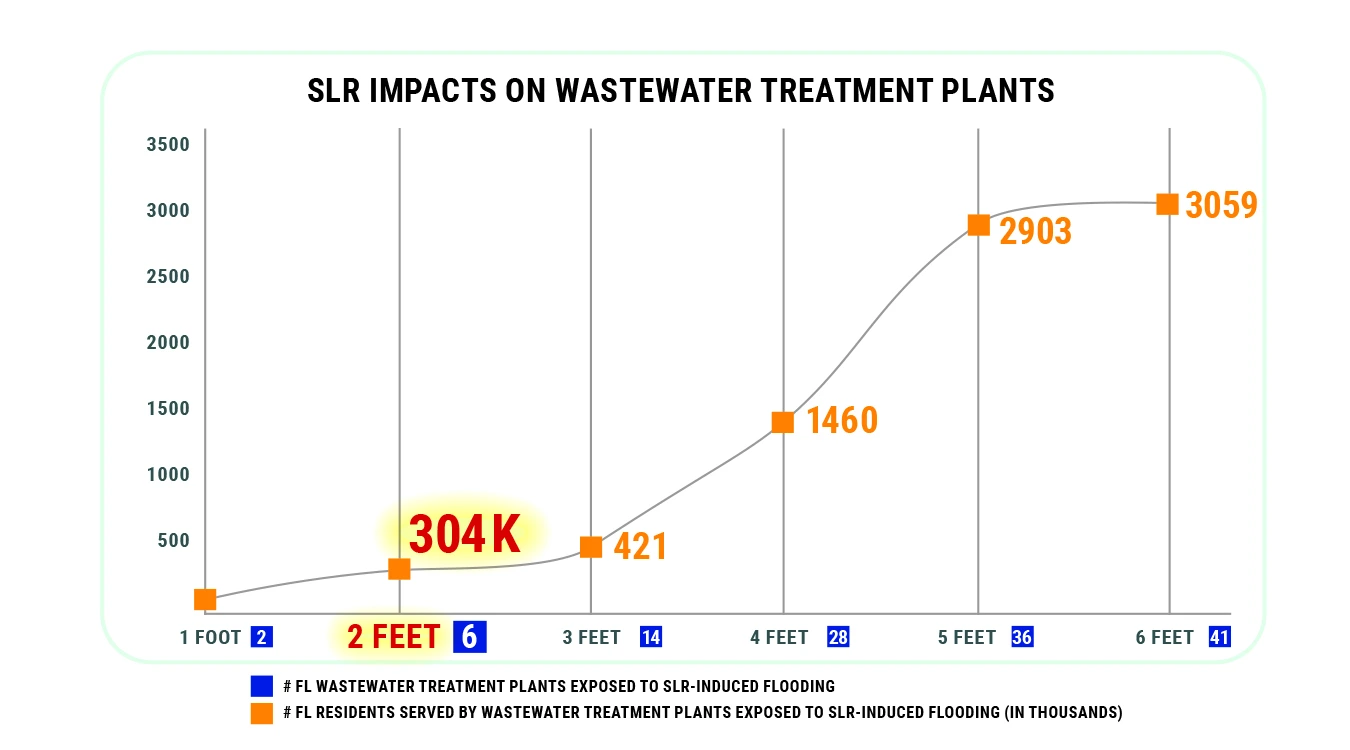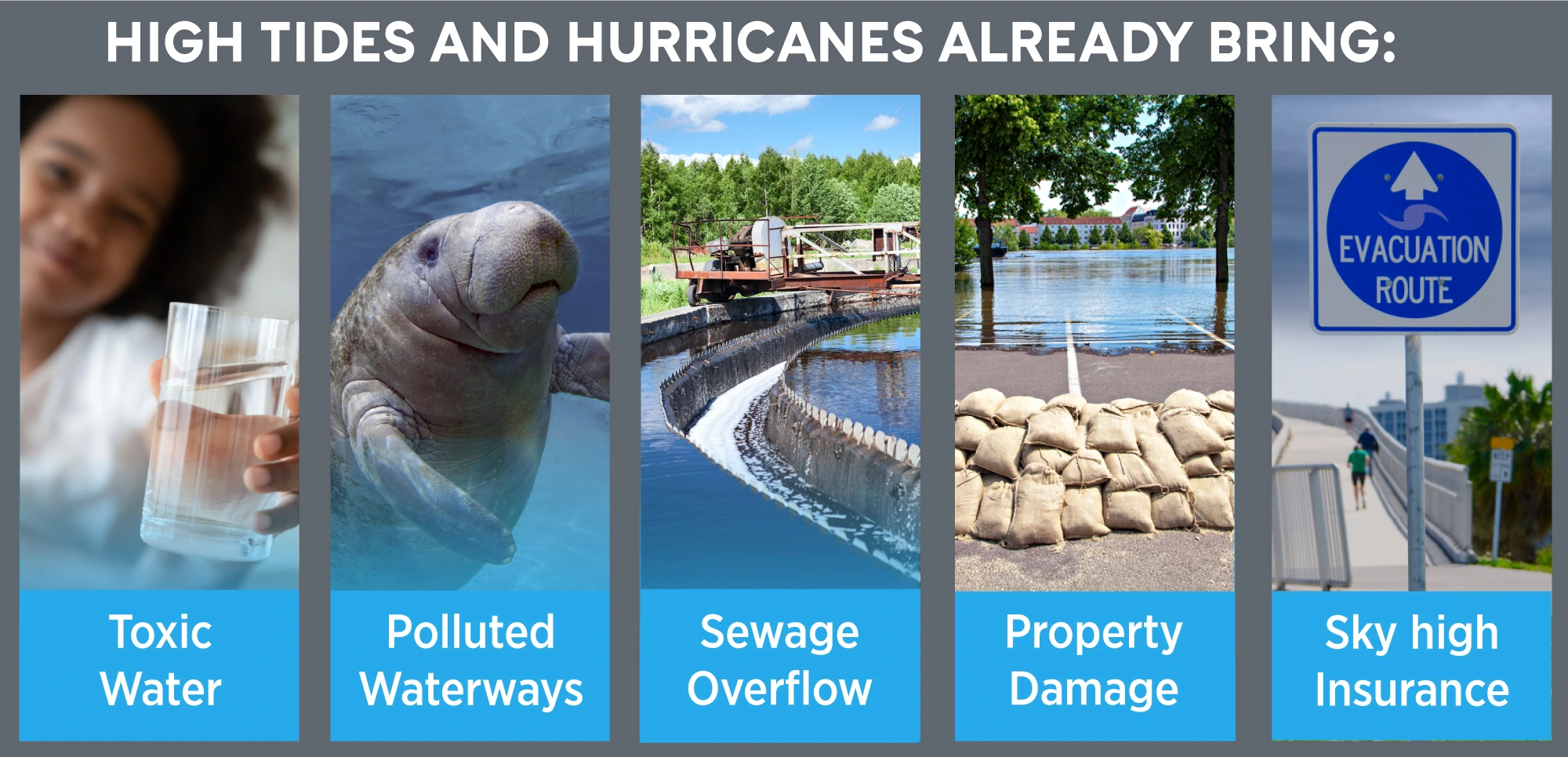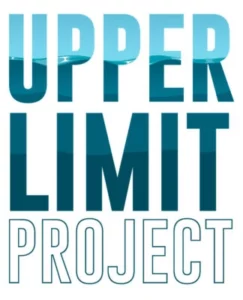
We are a team of environmental strategists, non-profit leaders, climate scientists, and civic professionals who have galvanized around the unique idea that just like the UN Conference of the Parties set an upper limit to the amount of warming our planet can withstand with the Paris Climate Accord — 1.5 to 2 degrees Celsius – Florida needs to set an upper limit on the amount of sea-level rise that it can withstand and still have a viable economy.
Our strategy is to identify key influencers with both public-facing and behind the scenes outreach campaigns to advance policies that will keep Florida at or below the upper limit.
BEYOND 2 FEET: Increased Flooding & Property Loss
• Immobilized traffic, flooded buildings, and infrastructure
• Abandoned properties and reduced tax base
• Eroded shorelines and salt water intrusion harming estuary ecosystems and wildlife
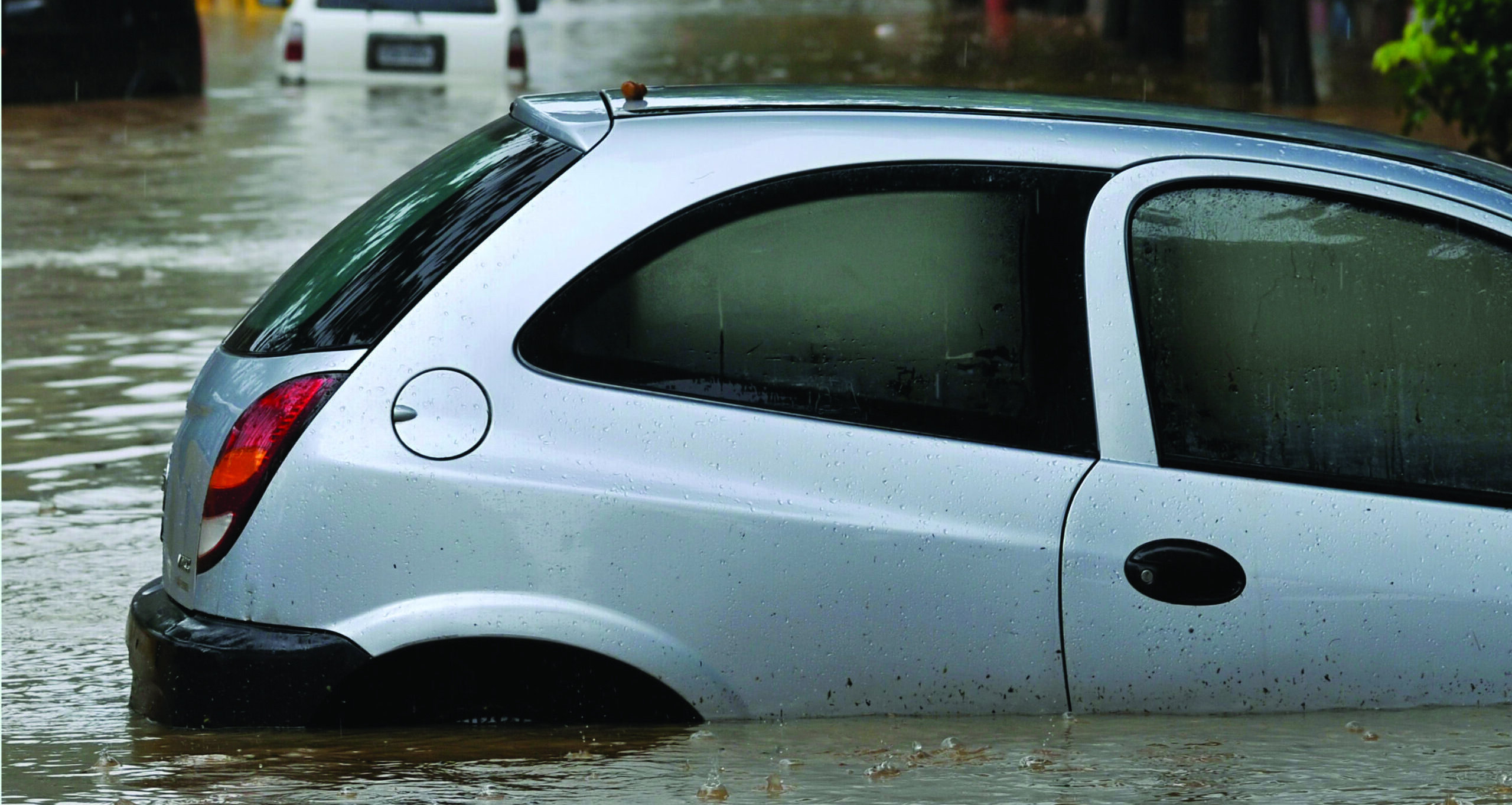
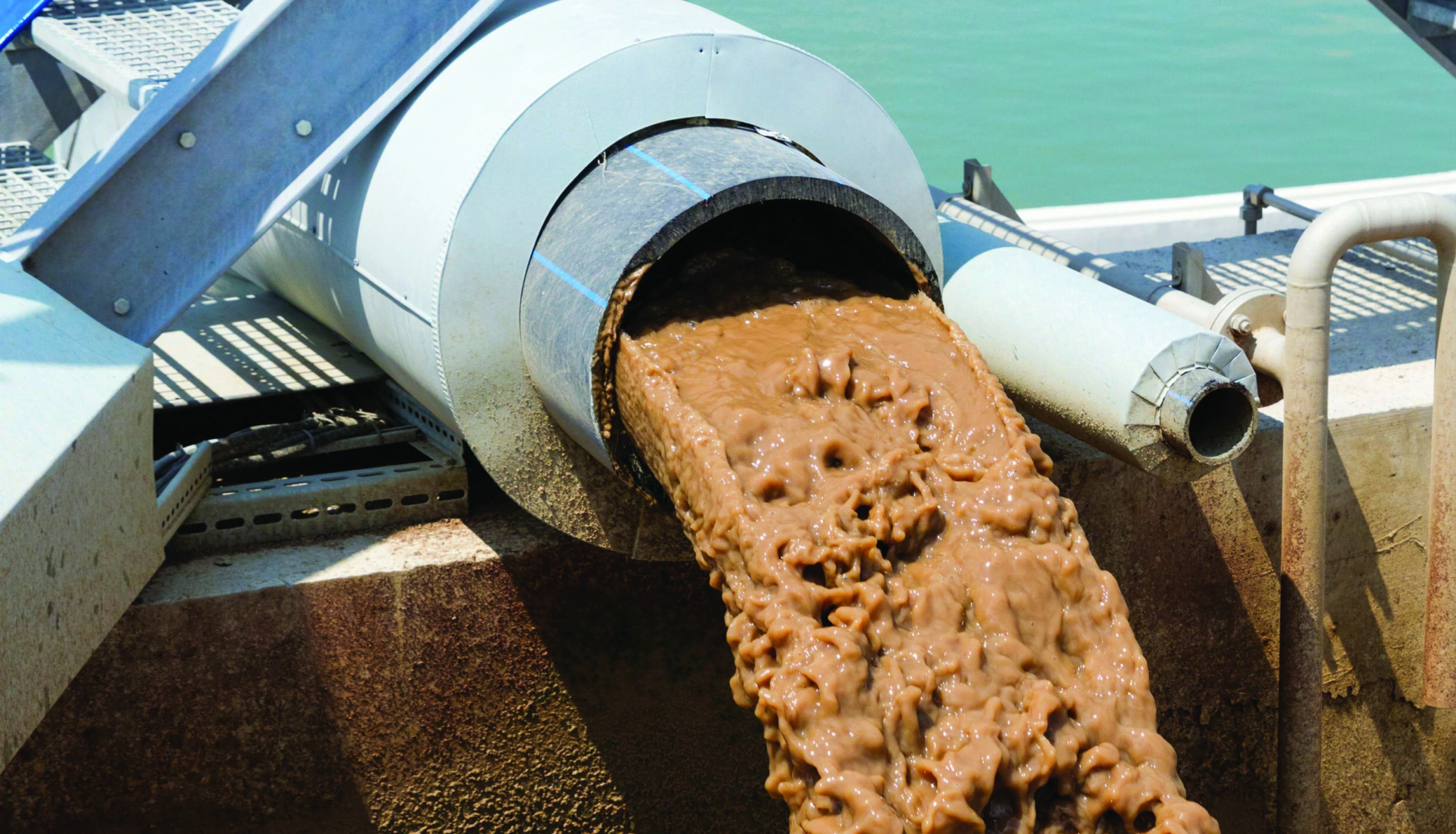
BEYOND 2 FEET: Water & Sewage Systems Fail
• Low-elevation sewers fail during coastal flooding, impacting
millions of people.
• Failing drinking water infrastructure exposes people to pathogens and harmful chemicals.
More than 2 feet of sea-level rise is exponentially more expensive and dangerous. Florida is poised to adapt to 2 feet of sea-level rise already baked in from emissions, but we must stop it there.
It’s not too late to stop the seas from rising above 2 feet. We can and MUST reduce emissions that cause sea-level rise to protect Florida’s future.

The Upper Limit Project aims to shift the climate change conversation in Florida from one about adapting to sea level rise to one that prioritizes setting an UPPER LIMIT of two feet of sea level rise and prioritizing greenhouse gas reduction strategies to address the cause of the problem.
Florida’s state legislative leaders have finally acknowledged the need to address sea level rise, which is a significant and hard-won step toward preparing the state for climate change. Unfortunately, the state’s policies are largely focused on adaptation measures. They make little to no effort to reduce the greenhouse gas emissions that are the root cause.
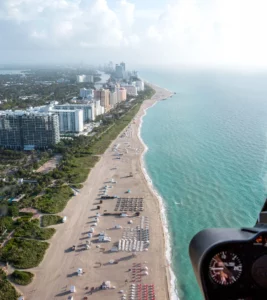
Sea level rise will impact the pillars of the Florida economy, including agriculture, tourism, real estate, construction, ports, and international trade — all of which depend on proper management of natural resources. Making policy decisions now to maintain emissions below the upper limit will reduce future costs for transportation infrastructure, public health, disaster management, and social services. Limiting sea level rise and heat to the upper limit is essential to maintaining a functional Florida economy, and to the health, safety and well-being of Florida’s inhabitants.
Florida cannot adapt its way out of multiple meters of sea level rise — which is where we are headed if the globe continues to warm at its current pace and we lose the Greenland and Antarctica ice sheets. Besides property and infrastructure, over two feet of sea level rise threatens freshwater supplies, coastal tourism, and ecosystems including the Everglades – one of the most biodiverse places on Earth. Although the Florida Legislature directed considerable funding to adaptation to sea level rise, there are no policies to address the root cause of climate change.
To ensure Florida’s future economic prosperity, and the safety and well-being of its residents, its leaders must also embrace emissions reduction scenarios at the scale necessary to prevent Florida from being submerged.
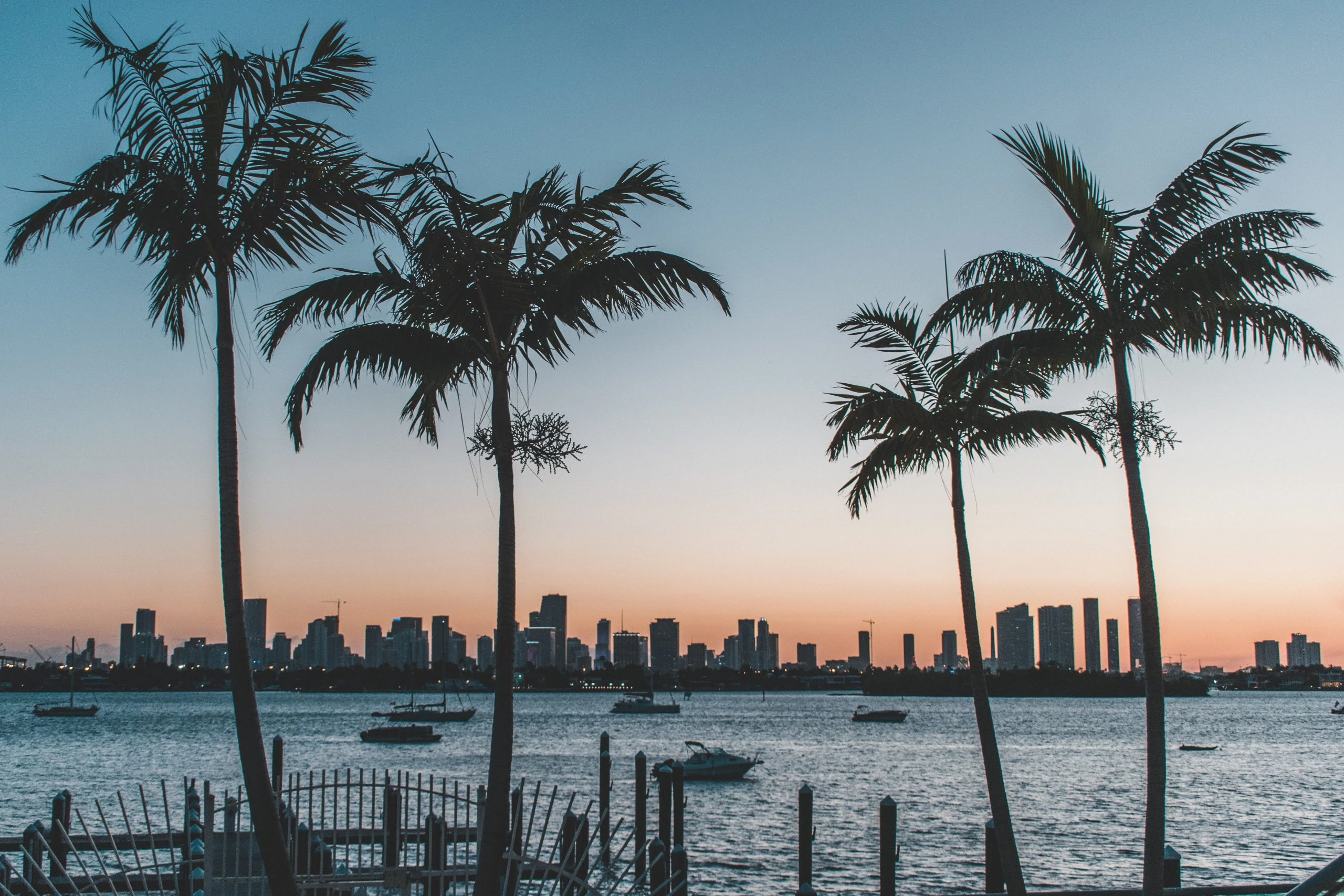
The central goals of the Upper Limit Project are to move the State of Florida to formally recognize that there are upper limits of sea-level rise and heat beyond which Florida’s economic viability cannot be maintained and to establish policy that reduces greenhouse gas pollution, helping to keep Florida below those upper limits.
In addition, keeping Florida below the upper limit requires decarbonization at a global scale. So, the campaign must also advocate for the state to be a global leader and advocate for meaningful action at the national and international levels, to secure a global emissions pathway consistent with the ‘upper limit.’ Given that our economy is so significant, Florida is well positioned to wield influence.

In its research, the steering committee pulled together top climate scientists and experts to establish how much sea level rise and heat is “too much” for Florida and its residents to tolerate, based on an assessment of current climate science. Other experts worked with us to examine compounding impacts and the real world impacts that communities experience from rising seas, extreme heat and intensifying hurricanes. We have now finalized a simple emissions reductions scenario and policy pathway that will keep Florida within the defined ‘upper limit.’ By utilizing scientists and experts in the research phase, we also developed a network of experts who will continue to act as project advisors.
Two technical workshops asked experts to define the upper limit of sea level rise and heat based on existing data. In these workshops, we convened more than two dozen of Florida’s leading climate scientists, from major universities, posing the question: What is the upper limit of sea-level rise and heat that Florida can withstand?
We now have a simple, straightforward path for Florida to adopt, recognizing an upper limit to sea level rise and heat in order to keep Florida’s emissions in alignment with the upper limit.
The takeaways from these workshops can be found here (sea level rise) and here (heat), and represents a range of upper limit(s), provided in feet of sea level rise and key thresholds for heat.
We further defined the upper limit in a workshop using the framework of equity and real-world impacts. This convening included a subset of the technical experts from the previous workshops, as well as additional subject matter experts focused on topics such as housing, health, and other sectors that illustrate the cascading and compounding impacts of climate change. These experts looked at an emissions scenario that puts Florida at 2.75 feet of sea level rise, and 4-5 degrees Fahrenheit on average higher in 2050 than today. The experts looked at how life changes for Floridians under those conditions, (for example, what happens as a practical matter at 3 feet of sea level rise?) A synopsis of this workshop can be found here.
We then used existing frameworks to lay out a policy path of emissions reductions. The team worked with experts to connect sea level rise and heat projections, impacts, and emissions.
We now have a simple, straightforward path for Florida to adopt, recognizing an upper limit to sea level rise and heat in order to keep Florida’s emissions in alignment with the upper limit.

Steering Committee
Rafe Pomerance
Former Deputy Assistant Secretary of State for Environment
Kim Ross
ReThink Energy Florida
Cara Fleischer
ReThink Energy Florida
Brian Lee
ReThink Energy Florida
Leonard Berry
Founder, Florida Center for Environmental Studies at Florida Atlantic University
Serena Hoermann
Florida Atlantic University
Jason Liechty
Broward County
Dick Raines
Carfax CEO
Susan Glickman
Consultant
Workshop Research Partners
Broward County
Miami-Dade County
Deltares
Probable Futures
Climate Central
The Nature Conservancy
Florida Clinicians for Climate Action
Tallahassee Food Network
Florida Atlantic University
Florida International University
Florida Gulf Coast University
Florida A&M University
University of Florida
University of Miami
Florida State University
University of Wisconsin-Madison
Click the toggle bar of the media you want to see, then click the text to pull up a file.
The Upper Limit project is informed and guided by experts in the field. Click here for literature referenced during the workshops.

Rafe Pomerance has been a warrior fighting climate change since the 1970s.
To keep Florida economically viable, the state’s leaders should establish an upper limit to sea-level rise | The Invading Sea. (December 8, 2022) He shared his proposal Friday, December 9th, during an address at the Climate Summit in Fort Lauderdale.
The case for capping sea-level rise: A more tangible way to measure the harm from climate change | Foreign Affairs. (April 3, 2023)
Susan Glickman is a leader in the movement to elevate climate action in Florida.
Here’s why sea walls alone won’t save Florida from climate change | Tampa Bay Times (April 5, 2023)



